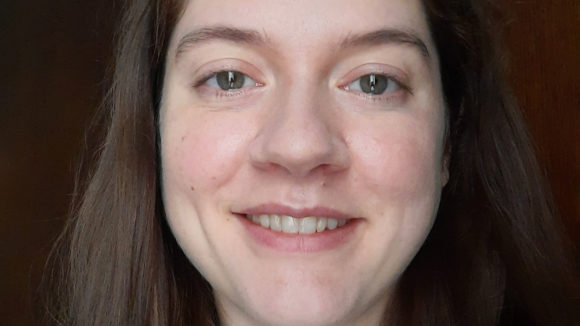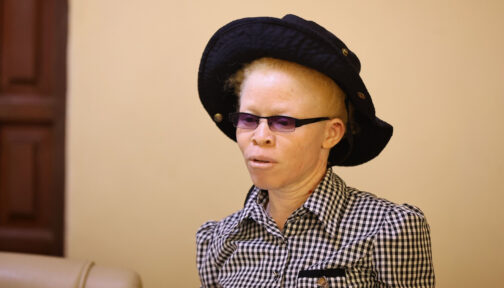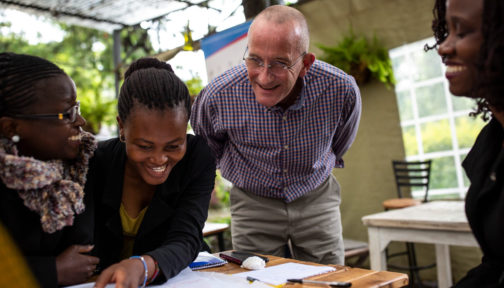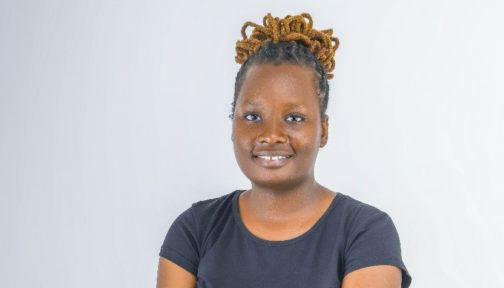Ellen Bates-Jefferys: “Women and people with disabilities are an integral part of the workforce, but they are usually undervalued”
Ellen Bates-Jefferys is a research manager at Innovations for Poverty Action.
She specialises in managing research projects involving people who are often marginalised. Here, she explains her motivations for working on human rights issues and shares her hopes for what the Global Labor Program – Inclusive Futures can achieve.
Ellen’s story
“When I left college, I joined the Peace Corps and began working on financial inclusion and education projects in Senegal.
“Working in this role, I saw how some people were excluded from both societal and support institutions. I also witnessed how intersectional issues concerning identity made people less valued and more excluded by society.
“I realised that these inequity issues were fundamentally a human rights concern. I switched my focus at this point to directly working in gender inequity.
“Throughout my career working across different countries, it has always been clear to me that human rights issues are at the heart of most concerns that need addressing. For that reason, I work in research that not only addresses human rights issues but is designed to explicitly tackle the barriers that people face.”
Rejecting the status quo
“My motivations for working in inclusion and human rights range from the personal to the academic. For me, it’s impossible to think about the state of disability inclusion, gender equity, and labour practices around the world and not reject the status quo as morally untenable.
“I was lucky to have early success in my career. When I first switched my focus while I was in the Peace Corps to gender concerns, I was able to lead a centralised group of volunteers to update trainings and support networks.
“By the time I left, over half of the Peace Corps volunteers working in Senegal had conducted a project specifically on gender equity. I still hear from some participants who say they benefitted from these projects. This made me realise that our efforts can pay off.”
Improving workers’ rights in global supply chains
“I come from the research sphere, so I value changes we can see. My hope for the Global Labor Program – Inclusive Futures is that the advocacy work around human rights results in tangible benefits for people, both in terms of changing attitudes towards people with disabilities and improving labour rights.
“The shifts and connections we’re seeing in international supply chains are a great time of risk for workers as work expectations are being redefined, but also a time of opportunity. With the growing conversation around labour practices globally, now is the time to establish standards of worker rights.
“Women and people with disabilities have always been an integral part of the workforce, but they are usually unseen or undervalued. There are a lot of changes I would like to see related to revaluing ableist and gendered-stigmatised tasks and recreating the idea of leadership.”
Creating supportive workplaces
“Fundamentally, I think we need to start thinking about institutions that employ people as workplaces that are meant to support employees.
“The purpose of a workplace is to provide the necessary materials, support and protocols to accommodate what each person needs to best do their job.
“Most recently, I am proud of working with Innovations for Poverty Action to adapt ethical research guidelines geared to accommodate all people. This includes specific considerations to ensure the voices of people with disabilities and women are included in research, while acknowledging that additional safety risks and other issues are addressed.”

Ellen Bates-Jefferys
Research manager, Innovations for Poverty Action.
Find out more about the Global Labor Program
Read moreMore from our people

Lucy Odwar: “Women with disabilities face many challenges”
Lucy is a director in the department of gender, social services and disability inclusion in Homabay County government. Through her work as part of the Homabay County Disability Forum, she supports the Global Labor Program – Inclusive Futures.

Simon Brown: “Our primary focus is on protecting the rights of people with disability in employment”
Simon Brown was global technical lead for economic empowerment at Sightsavers until August 2024.

Essy Olang: “We need to ensure that the voices of women with and without disabilities are heard”
Essy Olang is a project officer for Kenya Female Advisory Organization working on the Global Labor Program – Inclusive Futures.